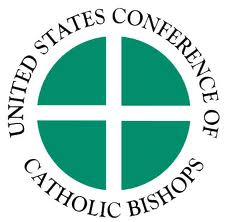Can you say theologia gloriae? I can say, theologia crucis.
Romanism
The Inquisition Isn’t Over, It Just Changed Clothes
RNS has a story about the Vatican’s policy of “pontifical secrecy.” Read the story. The approach Rome is taking toward the problem of sex abuse by priests reminds one of the policies followed in the inquisition. What was established for the preservation . . . Continue reading →
Another Area Where a Two-Kingdoms/Spheres Ethic Would Help
Rome still doesn’t seem to understand how grave the problem of pedophile priests is. NPR (HT: RNS) reports on the new measures adopted by the Vatican, including revisions to canon law, to address the crisis.
The Glory of Rome
The election of Pope Paul III in 1534 signaled the beginning of the counter-Reformation; that is Rome’s response to Luther, Calvin and their followers. One way Paul III hoped to counter the teachings of the reformation was to complete the construction of . . . Continue reading →
As I Was Saying
After much deliberation, prayer, and encourage from some friends and readers the HB is back. Thanks to a dear and loyal friend who did an amazing amount of work to make it happen. The last HB post was in May 2011. Much . . . Continue reading →
Office Hours: Steve Baugh on Hebrews 1
The theme for Season 4 of Office Hours is “Hebrews: Jesus is Really Better.” Steve is Professor of NT at Westminster Seminary California. He teaches our course on Hebrews and has been studying it for about 30 years. You can hear episode . . . Continue reading →
Who Are the True Catholics? (1)
There are truly important works that have simply been forgotten or unjustly ignored. One of those is William Ames’ Fresh Suit Against Human Ceremonies in defense of the Reformed theology and practice of worship. Another is William Perkins’ 1597 treatise, A Reformed . . . Continue reading →
Who Are The True Catholics? (2)
Part 1 In his treatise defending the Reformation understanding of Scripture against resurgent Romanism Perkins counted 22 issues between Protestants (his term) and Rome: 1 Of Free-will. 2 Of Original sin. 3 Assurance of salvation. 4 Justification of a sinner. 5 Of . . . Continue reading →
Canonization, Saints, And Christ Our Only Mediator
The AP ran a story yesterday on the naming of seven new Roman “saints.” According to the story, “Two of the new saints were Americans: Kateri Tekakwitha, the first Native American saint from the U.S., and Mother Marianne Cope, a 19th century . . . Continue reading →
Has Rome Really Changed?
Chris Castaldo (HT: Justin Taylor) takes issue with R. C. Sproul’s claim: The indisputable fact is that Rome made a number of strong, clear theological affirmations at the Council of Trent. Because Trent was an ecumenical council, it had all the weight . . . Continue reading →
Who Are the True Catholics? (5a): Justification
Part 4: Who are the True Catholics (4): Assurance of Salvation In theological terms, there were two principles of the sixteenth-century Protestant Reformation: the formal principle and the material principle. The first, the formal principle, was the doctrine that Scripture is the . . . Continue reading →
What Does Rome Mean By Papal Infallibility?
The impending arrival of the Bishop of Rome to Twitter (@Pontifex) has raised the question of papal infallibility in a new, late modern way. This seems like a good time to remind ourselves of what Rome teaches about the infallibility of papal . . . Continue reading →
Rome Agrees With the Medievals Except When It Doesn’t
The related identification of Scripture as pure, holy, sufficient, and perfect—pure, holy, and sufficient in its teachings for the preaching of salvation and perfect or complete in its communication of those teachings—is a point of doctrine that marks out a major line . . . Continue reading →
Godfrey on Rome
Videos by independent film maker Anthony Parisi.
William Perkins On Baptismal Regeneration
Paul, Rom. 4. stands much upon this to prove that justification by faith is not conferred by the sacraments. And from the circumstance of time he gathers that Abraham was first justified and afterward received circumcision, the sign and the seal of . . . Continue reading →
Of Catholicity and Confusion
One of the most confusing aspects of Protestant-Romanist dialogue is trying to determine “who speaks for Rome?” and trying to answer the question, “What does Rome believe?” One reason it can be difficult to answer these questions is that Rome likes it . . . Continue reading →
How Many Ex Cathedra Pronouncements Are There?
One of the principal reasons that some Protestants have given for converting to Rome is the desire for certainty, to escape the alleged uncertainty attached to the confessional Protestant doctrine of the perspicuity of Scripture. The unstated implication is that, in Rome, . . . Continue reading →
Meet the New Boss, Same as the Old Boss
Benedict XVI, who turns 86 in April, will abdicate the papacy at the end of this month. The election of a new pope is a good opportunity for a brief tutorial on some of the aspects of the papacy that the mass . . . Continue reading →
No Other Head Of The Church
There is no other head of the Church but the Lord Jesus Christ. Nor can the Pope of Rome, in any sense, be head thereof; but is that Antichrist, that man of sin, and son of perdition, that exalts himself, in the . . . Continue reading →
A Romanist Responds to the Reformation
I’ve had a fair bit of response to the HB over the years. Some of it comes over the transom from anonymous writers (anonymous comments are generally forbidden on the HB) and it usually goes where anonymous correspondence should go. This one, . . . Continue reading →










